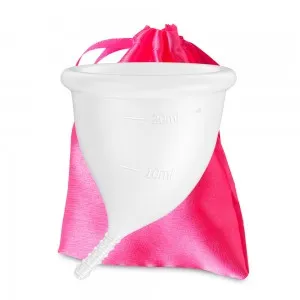irritation and itching can happen anywhere on the body including the vagina, which can be discomforting. Since vagina is a highly sensitive area, it can lead to increased discomfort and be embarrassing to talk about.
You should first know that most cases of genital irritation and itching aren’t serious. However nobody in their right mind would want to go through an entire day with constant itching and burning and swelling. It's better to find an immediate solution as it could spread and cause more infection. Even though it can be embarrassing to go to the doctor, it's better to find the real cause than stay quiet about it.
What Causes Vaginal Itching, Burning & Irritation?
When you go to the doctor, he would tell you about the various probable reasons of your vaginal itching, burning, and irritation. The most common causes seen in many women include:
- Bacterial vaginosis - Good bacteria buildup within the vagina walls is normal and healthy. However, the bad bacteria can make things difficult with its infection phase. Apart from itching, the bacterial vaginosis can cause burning, discharge, inflammation and a foul-smelling odour. But this is usually a mild problem that may go away on its own in a few days.
- Sexually transmitted disease (STDs) - Female symptoms of an STD can include vaginal itching, rashes, unusual discharge, and pain. Along with this Chlamydia, trichomoniasis, genital herpes and warts and gonorrhoea all can also be few other causes.
- Yeast infection (vaginal candidiasis) - It has been found that almost 3 out of 4 women experiences the causes of Vaginal Problems with yeast infection that is most likely to happen at least once in a woman's lifetime. Yeast breakout occurs when the yeast, candida, growth becomes excessive in the vagina and vulva. Antibiotics, pregnancy and intercourse and a weakened immune system can make women more prone to this cause of itching and irritating genital areas along with a thick and whitish colour discharge.
- Menopause - Vaginal dryness and irritation are the most common symptoms of menopause. This stage in a woman’s life leads to drop in oestrogen production which can cause the vaginal walls to dry out and thin in thickness. This in turn causes itching and irritation.
- Chemical irritants - Women being fond of cosmetics can call this situation themselves by using several forms, including laundry detergents, creams, scented toilet paper, contraceptive foams, soaps, and fabric softeners for irritating the most delicate skin of the vulva and vaginal walls.
- Lichen sclerosis - This is a rare condition where thin pale or white coloured patches form on the skin especially around the vulva. These patches can leave their permanent mark on the vaginal area, often in the postmenopausal period.
How Can Vaginal Itching, Burning, & Irritation Be Treated?
Mild vaginal irritations can often heal themselves but if the irritation persists, it's recommended to consult your doctor to get the best treatment. The doctor may first do a pelvic examination and take a sample for research purposes of the whitish discharge that's produced to get a clearer picture of the problem.
There are also organic remedies that are specifically designed to help reduce and prevent itching, discharge and odour. For Vaginosis and STDs, the doctor might suggest certain antibiotics/antiparasitics. You could also use herbs, the safest treatment on earth, to get rid of Bacterial vaginosis. These antifungal medications can be in form of creams, ointments, or suppositories, or oral treatments. Furthermore, you can treat Menopause-related itching with estrogen cream, tablets, or a vaginal ring insert.
For those who aren't experiencing this problem, it's always essential to maintain vaginal health and take preventative measures to avoid vaginal discomfort.

